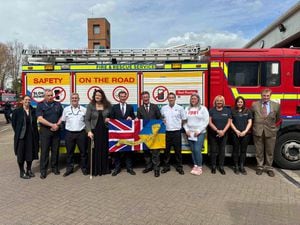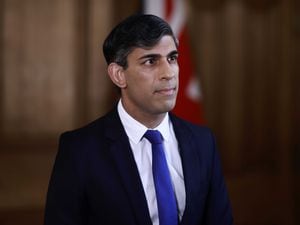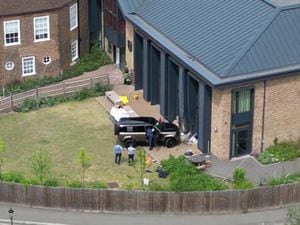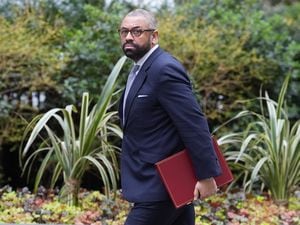Home Secretary admits police numbers ‘important part’ of stopping violent crime
Sajid Javid said the Government must take a fresh look at resources.
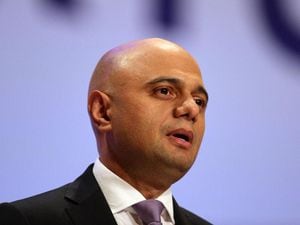
Police numbers are an important part of tackling the “disease” of violent crime, Home Secretary Sajid Javid has admitted.
Speaking after five people were stabbed to death in less than a week in London, he told Good Morning Britain that the Government needs to take “a fresh look” at resources.
Police funding has fallen by 19% in real terms since 2010, while officer numbers have decreased by more than 20,000 over the same period.
Mr Javid told Good Morning Britain: “Police numbers have to be an important part of the solution. Let’s not pretend that it’s not. There has been a big increase in police funding in the last three years.
“There was a big increase last year. That said, I’m the first to admit, we need to take a fresh look at that and make sure that police – not just in London, but across the country – have the resources that they need.”
He told presenter Susanna Reid that he wants the Government and public agencies to “to look at it as a disease and say: ‘How do we eradicate this disease?'”
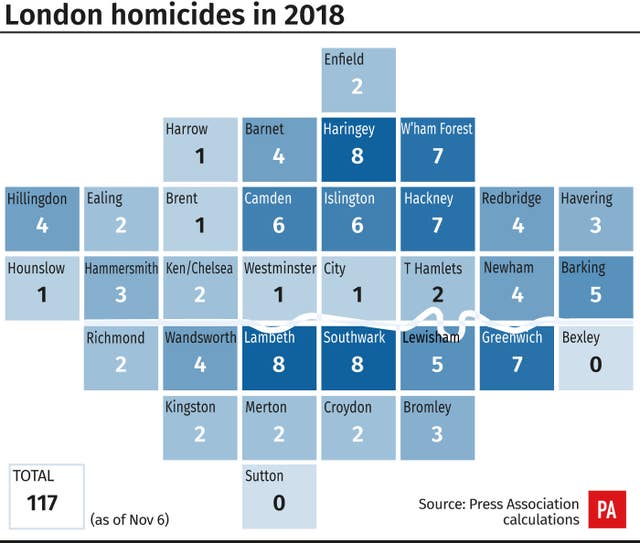
In the week from October 31, five people were stabbed to death in London in separate killings.
The first was “adored” father Rocky Djelal, 38, who was knifed by a masked attacker at lunchtime in Southwark Park in Rotherhithe, south-east London, near a children’s play area.
The following day, 15-year-old Jay Hughes was killed in Bellingham, also in south-east London, by a stab wound to the heart.
Malcolm Mide-Madariola, 17, was fatally knifed on November 2 outside Clapham South Tube station in south London, near where he studied.
On November 4, Ayodeji Habeeb Azeez, 22, from Dagenham, was fatally stabbed in Samos Road, Anerley, also in south London.
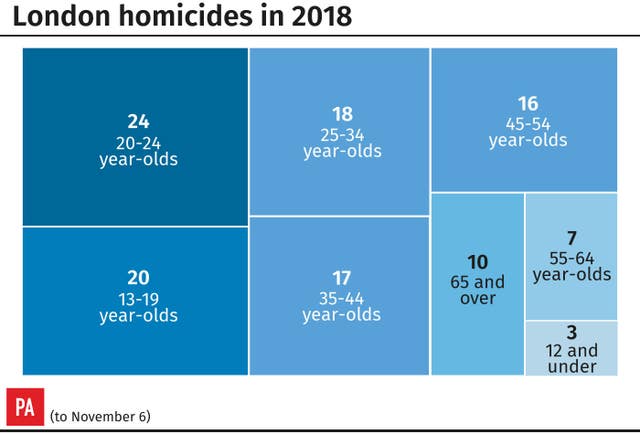
And 16-year-old John Ogunjobi died in Tulse Hill, south London on November 5 after having dinner at a friend’s flat.
So far in London this year there have been 119 violent deaths, including two cases that are being treated as self-defence.
A third of the 117 remaining cases (42) involved victims aged 16 to 24, while 20 were teenagers.
The number of homicides in the capital is nearing that which was recorded for the whole of last year. In 2017 there were 118 violent deaths in the capital, excluding the victims of the terror attacks at Westminster Bridge, London Bridge and Finsbury Park.
This comes amid intense scrutiny of police performance and funding.
The number of arrests in England and Wales has halved in a decade, while recorded crime has risen across a number of categories including homicide and knife-related offences.
Earlier this month one of the country’s most senior officers called for a refocus on “core policing”.
National Police Chiefs’ Council chairwoman Sara Thornton warned forces are too stretched to take on all “deserving” issues, such as logging misogyny reports when no offence has been committed.
Pressure on ministers to provide a cash injection intensified after a warning from MPs that policing risks becoming “irrelevant” amid vanishing neighbourhood presences and low investigation and detection rates.

